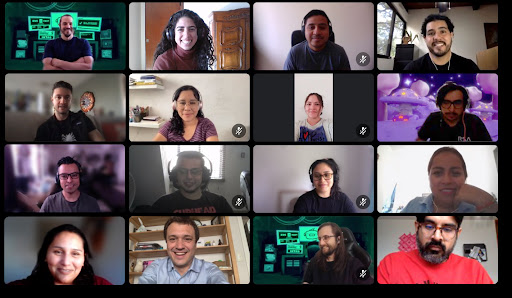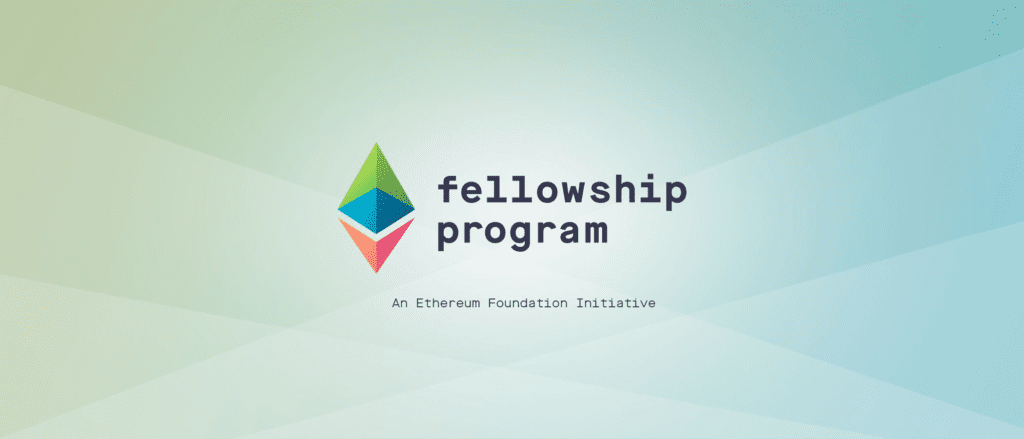The following is an update from Ethereum Foundation Fellow Chuy Cepéda.
Our identities hold immense power. In an age where people take great pride in using multiple aliases or personas, we often think about how to identify ourselves. I identify as a native of Monterrey, Mexico, Latin American, son, brother, father, husband, engineer, doctor, entrepreneur, dog lover, hitchhiker, and believer that democracies are suffering.
Thinking back to when I began meeting people from different countries and better understanding their access to public services, I remember realizing how remote this reality was for Mexicans. I realized that as my hometown grew, many decisions made by the government were unplanned or colluded. I learned that my home country, Mexico, was one of the least favored countries according to the Transparency International report. Corruption Perception Index. I realized that these problems are not limited to me and my home country, but affect people all over the world.
I now feel deep empathy for all those who cannot rely on the government for better transportation, adequate education, and health services. Meanwhile, I see technology having an increasingly significant impact on the daily lives of people across Latin America and beyond. Think for a moment: as people become increasingly digital and expect personalized, real-time services, public institutions are unable to meet these expectations.
Citizens face inefficiencies, a lack of transparency and red tape, and a terrible experience when it comes to interacting with their governments. This is a global crisis of agility and institutional trust that is eroding opportunities for prosperity, and that is why democracy as an ideal is suffering.
So I decided to incorporate a new part of my identity: I co-founded OS City improve the landscape of government services in the modern world, primarily by bring public institutions into the web3 paradigm. In other words, use blockchains to digitize government services and give citizens their decentralized digital identity.

The OS City team
Improve bureaucracy
From birth certificates to driver’s licenses and academic records, when we are asked to identify who we are as citizens, it involves sharing our personal information or identifying information, usually notarized by the government of the country we come from. Depending on where they are located, these records could be in a sophisticated networked database (as is the case for Estonian citizens), but more likely what we need when we need an “official identity” actually resides in the specialized passport printers of a stuffy government building, or spread throughout the filing cabinets of various branches of state banks, or maybe it’s nowhere at all!
When we “use” these representations of our identity, we are actually interoperating distinct bureaucratic systems. If the visa is stamped by a customs office Country A fit passport pages Country Bthat’s “good enough” for us in most cases. But when this basic interoperability is subject to more stringent requirements, or when it fails, that’s when we find ourselves in trouble. Office A requires an original document stamped with Office Bwhich closes after 3 p.m. and requires a notarized letter of Department Cwhich is located in another part of the city and which first requires the approval of the Office A…some of us are all too familiar with being locked in this sort of paperwork prison. This is where collusion and corruption are born, where we trigger the snowball effect that results in a terrible response to social distress, economic growth and climate change.
The fundamental challenge is that everyone must have an identitybut it is simply not true that everyone has a interoperable representation of identity. This is where I believe we can do better. It won’t be easy, and it certainly won’t happen all at once, but if we start in the right direction, we could end up where we want to be. Part of our work to address these issues led us to develop an application-specific wallet called Soberana, intended to be used to maintain and manage digital identities.
Blockchains are, by design, built from interoperable, standardized components that can combine and integrate in all kinds of ways. Any blockchain designed to be compatible with Ethereum or EVM will follow the same set of standards. So at Soberana, that’s our starting point. Unfortunately, we work in a design space that must allow for some degree of centralization, that is, a government authority must approve a document or identity.
Nevertheless, we start from a small core of identity which is still compatible with the open, permissionless systems of the Web3 world. From this compatibility, it is much easier to improve and build more complex systems over time – a network economy of digital services, both centralized and decentralized. The objective here is maximum compatibility for a digital identity: Whether you use it for a centralized government notary, a proprietary banking transaction, or a public NFT registry, your ID should flow between these systems transparently and securely.
As we add more and more features, we will be able to verify, carry, and share that identity across a whole suite of government services all connected to each other. From weddings to mortgages, all documents that require identity could be debureaucratized and made painless by using the right infrastructure. By starting small and with this first piece of the puzzle, we are paving the way for broader institutional reform, using technology wisely to increase the legitimacy of the public sector as a whole.
Last year, we focused on rolling out an official citizen digital identity through a government-run online portal, where citizens obtain a wallet that serves as their digital identity and digital document holder. Citizens can transfer and use official documents in their digital wallet, as well as share and renew these documents.
For the moment, these documents are limited to commercial permits, building permits, powers of municipal inspectors, taxpayer declarations, among others; but we are working to expand and incorporate as many documents as possible to be compatible with local governments in Mexico and Argentina.
The long term vision
I now understand that bureaucracies are just inertial inefficiencies of governments that have lost the enthusiasm for innovation. This is why I believe blockchains have enormous potential to lead us into a new era of openness and collaboration that will help increase the legitimacy of the public sector. With the help and support of public sector leaders, we can create radical change in the government sector, and even make it a thriving area for business, furthering our nations’ digital, economic and social transitions.
My short-term vision is to be able to provide citizens with the ability to own their official documents, eliminate duplicate efforts in every government process, make government transactions traceable and transparent, and foster the government’s first standard for government information. identification verifiable by blockchain. We hope this will show the international public sector that interoperability can succeed when we put citizens at the center, when innovation drives regulation and not the other way around.
In the long term, I hope we can all work together to rethink governance and identity. We start by rethinking and reinventing how governments, people and businesses interact; In a decentralized digital world, interactions are not centered on the state or the market, but rather on the community and citizens. This entails a new ecosystem vision in which government, startups, academia and civil organizations jointly explore public problems, seek (and transfer) appropriate solutions and build on their learnings. It is not the state that recruits suppliers, but the state that interacts with other actors to solve society’s most pressing problems. I believe a new digital identity is a step that will enable governments, citizens and communities to make the most of blockchain technology, driving prosperity through a network of citizen-centric digital services.
To learn more about the Ethereum Foundation Scholarship Program, read this blog post.




